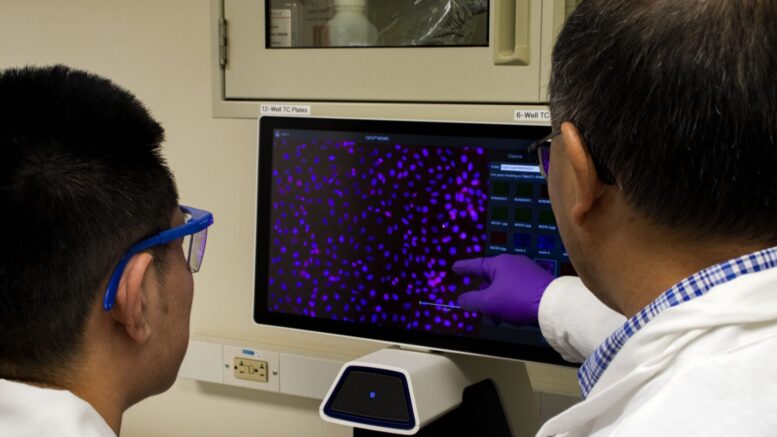Scientists at the University of Missouri have found a protein in our body that is very important for the coronavirus to spread from one cell to another. This discovery can help us learn more about COVID-19 and might help us create new drugs to fight the virus in the future.
The finding provides new insight into how the protein, known as the occludin protein, serves as a mediator for cell-to-cell transmission of the virus.
Wenjun Ma, a professor at the University of Missouri, says that even though we have done many things to try to stop COVID-19, like making vaccines and drugs, the virus is still spreading and infecting people every day. This is why it's important to do research to understand how the virus works inside our bodies. If we know more about it, we can create better ways to stop it from making people sick.
Ma and his team studied how the coronavirus moves from one cell to another by looking at cells in the MU Laboratory for Infectious Disease Research. This lab is very important for scientists who study infectious diseases, and it helps them understand these diseases better so they can protect people from getting sick, both in the US and in other countries.
During the study, Ma discovered that when the coronavirus damages a protein called occludin in one cell, it can spread quickly to other cells nearby. This can make the infection worse and cause more severe symptoms.
Ma believes that this new knowledge could help scientists create better antiviral drugs. By understanding how the virus damages the occludin protein, scientists can try to make drugs that can protect this protein from being damaged. This can help prevent the virus from spreading to other cells, which can stop the infection from getting worse.
Ma explained that by doing this kind of research, scientists can learn more about how the virus works and how it spreads from cell to cell. This can help us understand how the disease progresses and what happens inside our cells when we get infected. The research showed that even though the virus might start by infecting only one cell, it can quickly spread to other cells once the occludin protein is damaged. This can make the infection more severe and cause respiratory problems, especially if the virus spreads to cells in the lungs.
Going forward, Ma plans to study if other viral infections also impact the occludin protein in an effort to better understand how viruses interact at the cellular level with the hosts they infect.
The research study called "Tight junction protein occludin is an internalization factor for SARS-CoV-2 infection and mediates virus cell-to-cell transmission" was recently published in PNAS. The study was supported by funding from different sources, including the University of Missouri, the National Institutes of Health, the Centers of Excellence in Influenza Research and Response, the Kansas University Medical Center, and the Peachtree Collaborative Orthomolecular Medicine, Education, and Research Foundation. The study's co-authors include Jialin Zhang, Wenyu Yang, Sawrab Roy, Heidi Liu, R. Michael Roberts, Liping Wang, and Lei Shi.
Source: University of Missouri, Columbia
